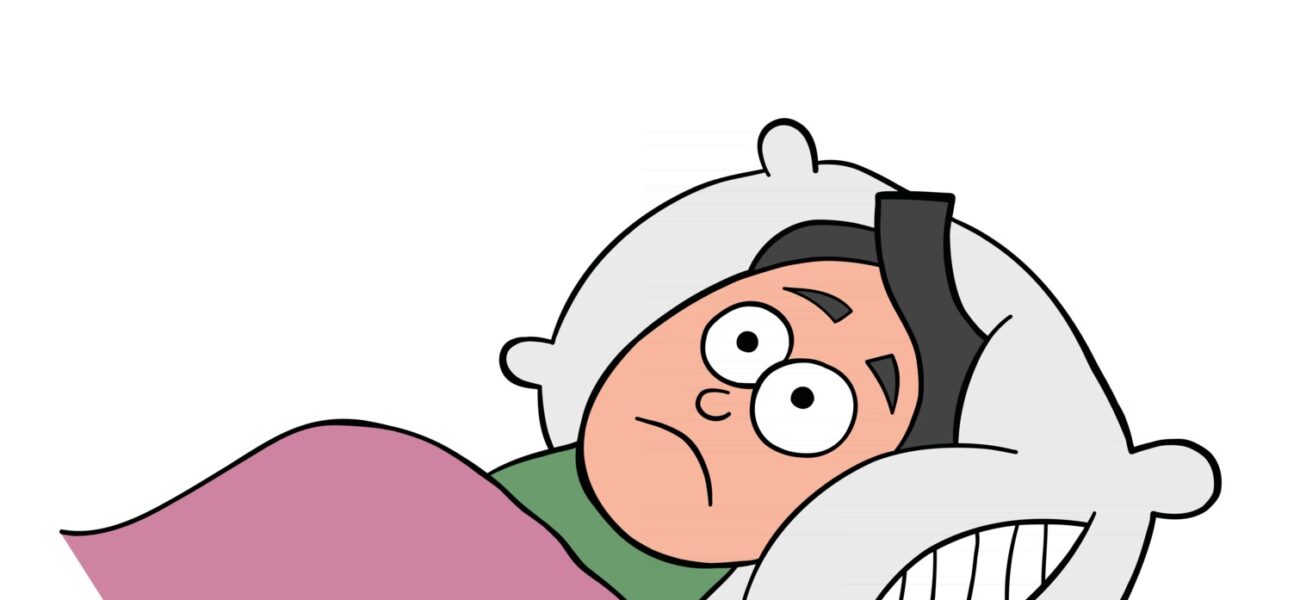Trouble sleeping, or insomnia, is a common sleep disorder that affects millions of people around the world. It can make it hard to fall asleep, stay asleep, or get enough quality sleep. Trouble sleeping can have various causes, such as stress, anxiety, depression, medical conditions, medications, lifestyle habits, or environmental factors. Trouble sleeping can also have negative effects on your physical and mental health, such as impaired memory, concentration, mood, immunity, and performance. Trouble sleeping can usually be treated with cognitive behavioral therapy (CBT), medications, or natural remedies, but sometimes it may require medical attention.
Types of Trouble Sleeping
There are different types of trouble sleeping, depending on the duration and frequency of the problem. Some of the common types are:
• Acute insomnia. This is a short-term type of trouble sleeping that lasts for a few days or weeks. It is usually caused by temporary factors, such as stress, travel, illness, or life events.
• Chronic insomnia. This is a long-term type of trouble sleeping that lasts for at least three months and occurs at least three times a week. It can be caused by various factors, such as medical conditions, medications, psychological issues, or poor sleep habits.
• Onset insomnia. This is a type of trouble sleeping that makes it hard to fall asleep at the beginning of the night. It can be caused by various factors, such as anxiety, caffeine intake, or irregular sleep schedule.
• Maintenance insomnia. This is a type of trouble sleeping that makes it hard to stay asleep throughout the night. It can be caused by various factors, such as pain, noise, light, temperature, or frequent urination.
• Terminal insomnia. This is a type of trouble sleeping that makes it hard to go back to sleep after waking up too early in the morning. It can be caused by various factors, such as depression, stress hormones, or circadian rhythm disorders.
Symptoms of Trouble Sleeping
Trouble sleeping can have various symptoms, depending on the type and severity of the problem. Some common symptoms that may accompany trouble sleeping are:
• Difficulty falling asleep or staying asleep. This is the main symptom of trouble sleeping that can affect your ability to get enough rest and feel refreshed in the morning.
• Waking up too early or feeling unrefreshed. This is another symptom of trouble sleeping that can affect your energy level and mood throughout the day.
• Daytime fatigue or sleepiness. This is a symptom of trouble sleeping that can impair your alertness and performance at work, school, or other activities.
• **Irritability, depression, or anxiety**. This is a symptom of trouble sleeping that can affect your emotional well-being and interpersonal relationships.
• **Difficulty concentrating, focusing, or remembering**. This is a symptom of trouble sleeping that can affect your cognitive function and productivity.
• Increased errors or accidents. This is a symptom of trouble sleeping that can increase your risk of injury or harm to yourself or others.
Diagnosis of Trouble Sleeping
To diagnose the cause of trouble sleeping, a doctor will usually perform a physical examination and ask about the history and symptoms of the problem. The doctor may also order some tests to confirm the diagnosis or rule out other possible causes. Some of these tests are:
• Sleep diary. This involves keeping a record of your sleep patterns and habits for a couple of weeks. You may be asked to note down the time you go to bed and wake up, the quality and quantity of your sleep, any factors that may affect your sleep, such as caffeine, alcohol, stress, or noise, and how you feel during the day, such as tired, alert, or moody.
• Sleep questionnaire. This involves answering a set of questions that measure your sleep-wake cycle and your level of daytime sleepiness. You may be asked to rate how likely you are to fall asleep in different situations, such as sitting and reading, watching TV, or driving a car.
• Sleep study. This involves spending a night at a sleep center where your brain waves, breathing, heart rate, eye movements, and muscle activity are monitored and recorded while you sleep. This can help identify any abnormalities or disorders in your sleep, such as sleep apnea (a condition where you stop breathing briefly during sleep), restless legs syndrome (a condition where you have an irresistible urge to move your legs during sleep), or narcolepsy (a condition where you have excessive daytime sleepiness and sudden attacks of sleep).
Treatment of Trouble Sleeping
The treatment of trouble sleeping depends on its cause, type, and severity. The main goals of treatment are to improve the quality and quantity of your sleep and to address any underlying conditions or factors that may be contributing to your problem. Some common treatments for trouble sleeping are:
• Cognitive behavioral therapy for insomnia (CBT-I). This is a type of psychotherapy that teaches you how to change your thoughts and behaviors that interfere with your sleep. It can help you identify and overcome negative beliefs and worries that keep you awake, establish a regular and relaxing bedtime routine, create a comfortable and conducive sleep environment, avoid habits that disrupt your sleep, such as napping, using electronic devices, or checking the clock, and adopt strategies to cope with insomnia episodes.
• Medications. These can help you fall asleep faster or stay asleep longer by affecting certain chemicals in your brain that regulate your sleep-wake cycle. They can be prescribed by your doctor for short-term or long-term use depending on your situation. Examples of medications include benzodiazepines (such as temazepam or triazolam), non-benzodiazepines (such as zolpidem or eszopiclone), melatonin receptor agonists (such as ramelteon), antidepressants (such as trazodone or doxepin), or antihistamines (such as diphenhydramine or doxylamine).
• Natural remedies. These can help you relax and promote sleep by using natural substances or methods that have sedative or calming effects. They can be used alone or in combination with other treatments depending on your preference and response. Examples of natural remedies include herbal teas (such as chamomile or lavender), supplements (such as melatonin or valerian), aromatherapy (such as lavender or jasmine oil), acupuncture (a technique that involves inserting thin needles into specific points on the body), meditation (a practice that involves focusing your attention on a single object or sensation), yoga (a system of physical exercises and breathing techniques), or massage (a technique that involves applying pressure and movement to the muscles and soft tissues of the body).
Home Remedies for Trouble Sleeping
In addition to medical treatment, there are some home remedies that can help ease trouble sleeping and improve your sleep hygiene.
Some of these are:
• Stick to a regular sleep schedule. This entails going to bed and getting up at the same time every day, including weekends and holidays. This can help regulate your circadian rhythm, which is your natural 24-hour body clock that controls your sleep-wake cycle.
• **Avoid caffeine, alcohol, and nicotine**. These are stimulants that can keep you awake or disrupt your sleep quality. Consume them at least four to six hours before going to bed.
• Exercise regularly. This can help reduce stress, improve mood, and promote physical health. Exercise at least three hours before bedtime, as exercising too close to bedtime can make it harder to fall asleep.
• Limit naps. Napping during the day can interfere with your night-time sleep, especially if you nap for too long or too late in the day. Limit naps to 20 minutes or less, and avoid napping after 3 p.m.
• Create a comfortable and conducive sleep environment. This involves making sure your bedroom is dark, quiet, cool, and comfortable. To filter off any exterior light sources, use curtains, blinds, or shades. Use earplugs, fans, or white noise machines to mask any external noise sources. Use fans, air conditioners, or heaters to adjust the temperature according to your preference. Use mattresses, pillows, sheets, and blankets that suit your comfort level.
• Avoid electronic devices before bed. These include TVs, computers, smartphones, tablets, or video games. They emit blue light that can suppress the production of melatonin, which is a hormone that helps you fall asleep. They also stimulate your brain and keep you alert and engaged. They should not be used at least an hour before going to bed.
• Do something relaxing before bed. This involves engaging in activities that help you unwind and calm down before sleeping. Examples include reading a book, listening to soothing music, taking a warm bath, or doing some gentle stretches.
When to See a Doctor
Trouble sleeping is usually not a medical emergency, but it can be a sign of a serious condition that requires prompt diagnosis and treatment. Some situations when it is advisable to see a doctor for trouble sleeping are:
• The trouble sleeping is severe, chronic, or unexplained.
• The trouble sleeping is accompanied by other symptoms such as snoring, gasping for air, leg movements, or daytime sleepiness.
• The trouble sleeping is caused by an underlying medical condition such as diabetes, thyroid disorder, heart disease, or depression.
• The trouble sleeping interferes with daily activities and quality of life.
Summary
Trouble sleeping is a common sleep disorder that affects millions of people around the world. It can make falling asleep, staying asleep, and getting adequate quality sleep difficult. Trouble sleeping can have various causes, such as stress, anxiety, depression, medical conditions, medications, lifestyle habits, or environmental factors. Trouble sleeping can also have negative effects on your physical and mental health, such as impaired memory, concentration, mood, immunity, and performance. Trouble sleeping can usually be treated with cognitive behavioral therapy (CBT), medications, or natural remedies, but sometimes it may require medical attention. In this blog post, we explored some of the types, causes, symptoms, and treatments for trouble sleeping.



